A meaningful curriculum goes beyond the collection of subjects and helps learners develop the academic abilities, life skills and attitudes necessary for growth. We use a variety of approaches in class to provide our students with a platform for such growth.
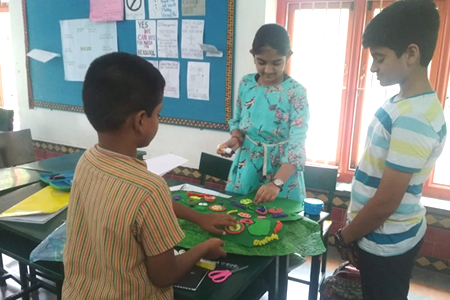
This is a student-centric pedagogy that involves a dynamic classroom approach which believes that students acquire deeper knowledge through active exploration of the real world challenges. It involves working for extended periods, at times in collaborative groups, to research, experience and present on the process involved and the conclusion. It results in deeper learning, greater engagement and higher quality of work.
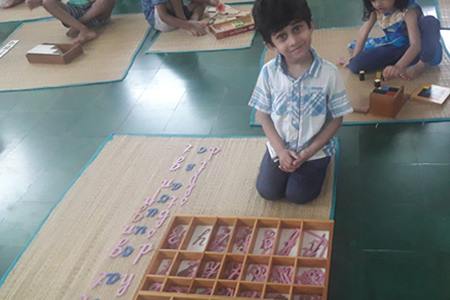
Children are intrinsically motivated natural learners who do not need micromanaging. Independent learning is not self study but helps children take ownership of their learning. At Hari Shree, learning is facilitated to make children responsible for their learning through synchronous and asynchronous methods. Synchronous learning occurs in classrooms through teacher facilitated activities like seminars, group discussions, role play, presentations etc. Carefully curated content like videos, guiding formats and reference materials are provided to work asynchronously (independently) at home. Students are also supported to self evaluate and reflect on their learning, and to seek help when necessary. This empowers the students with skills for lifelong learning.
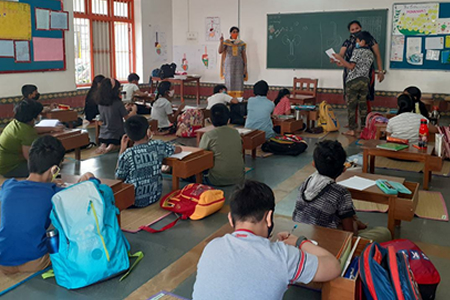
The class environment and the furniture are flexible, facilitating fluid transition between multiple teaching modalities – active to passive and back. It also provides freedom of movement to the facilitator to observe individuals and groups designed for collaborative activities. The wall space is dynamic and interactive, helping children to understand different perspectives.
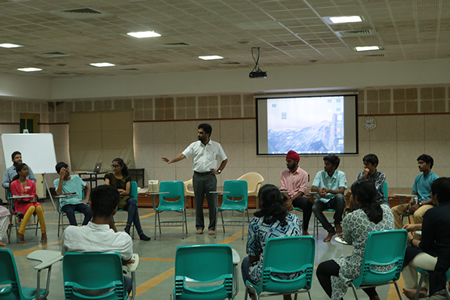
Academic mentoring supports individual students to maximize their potential. Through the school years, students are also guided to reflect, set personal goals and are empowered to achieve them. During primary years, an academic and social profile of children helps teachers to ascertain their strengths and needs, and support them.
Additional academic counselling and career guidance are provided in secondary and senior secondary, in partnership with an external organization, to help students to identify their interests, strengths and needs. The career guidance program offers online guidance and career mapping, webinars, automated career planning tools and tracker, and curated career information and database.
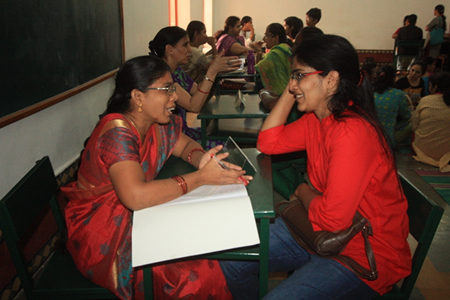
Academic support continues from in-class guidance to one-to-one guidance sessions, as Office Hours and Support Hours.
Office Hours is the time for children to meet the teacher to discuss the academic progress, behavioural issues and for teachers to mentor them.
Support Hours are offered to provide individual subject-related support to the children. These optional support hours can be initiated by the children or the teacher. The gap analysis in subjects and a planned discussion by the teacher.
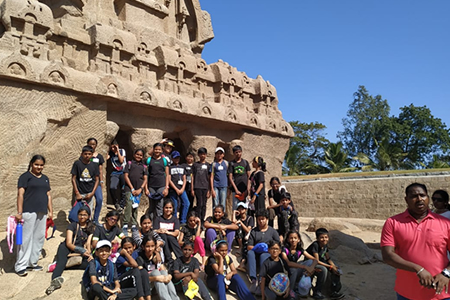
Field trips and outbound trips are planned to provide students with real-life and authentic experiences. These trips help widen the horizons of knowledge and broaden the scope of learning beyond the classroom.
All images and text @ Copyright Chettinad Hari Shree Vidyalayam. All Rights Reserved.